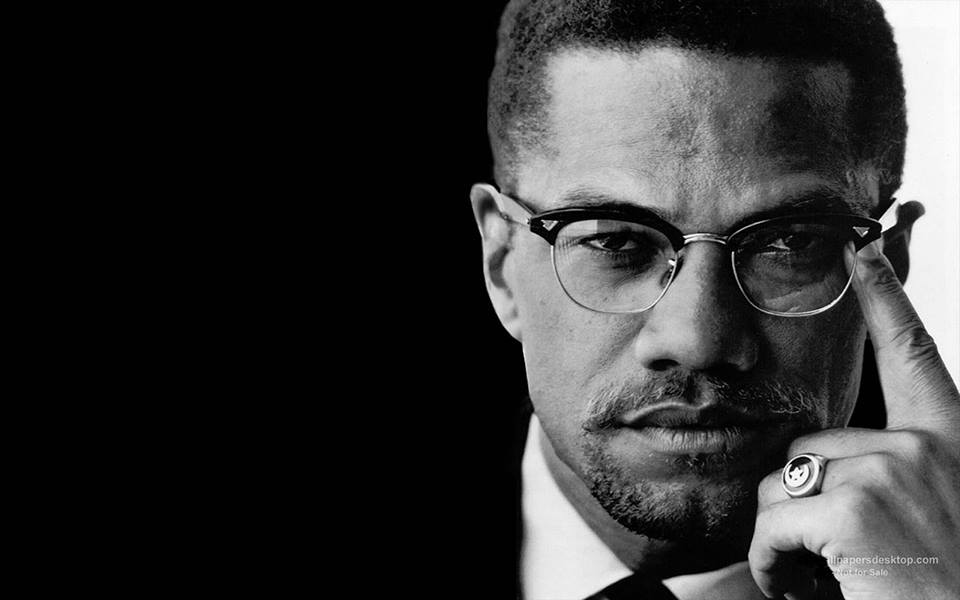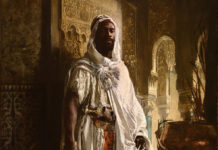When Malcolm X split with the Nation of Islam on personal reasons, he traveled on a pilgrimage to the holy city of Mecca, where he was exposed to another stream of Islam.
Historically, of course, Mecca is where the Prophet Abraham established a sacred site for the worship of the Pharaoh Akhenaten’s one God. It was there that Malcolm X first witnessed unity among different people, irrespective of their race. He wrote of his trip:
“But we were all participating in the same ritual, displaying a spirit of unity and brotherhood that my experiences in America had led me to believe never could exist between the white and non-white. But on this pilgrimage, what I have seen, and experienced, has forced me to rearrange much of my thought-patterns previously held, and to toss aside some of my previous conclusions. This was not too difficult for me. Despite my firm convictions, I have always been a man who tries to face facts.”
This was typical Malcolm X: slowly coming to believe that in order to live in a country that is majority white, a country that was preaching integration on a political level while still doing nothing to eradicate it systemically, he had to find a workable ground with the civil right movements of Dr. King.
Malcolm X concluded that since the doctrine of the Nation of Islam were in direct contravention with the beliefs of the Civil Rights movement for American integration, the only way to communicate with the rest of the African American society was to leave Elijah Mohammed’s establishment.
That is not to say he was right and Elijah Mohammed was wrong. But at the time, Malcom X felt that there was a chance, an opportunity to redefine America – one that includes the African American.
In this way he split with the Elijah camp that wanted nothing but a separate but equal society.
In the end America assassinated Malcolm by this very thought, by this very belief that America could be redefined. So was Dr. King. They were both killed, with a heavy handed CIA involvement, because America then was not ready to engage a free Black America.
Today, many will remember those assassinations of the revolutionary civil rights activists and reformers. Many will also undoubtedly lay claim to their legacy: their unwavering dedication to equality, unity and the truth.
For many Muslims, this is what made Malcolm X’s life both inspirational and exemplary. We saw him as one of our own. We still do. He died, 49 years ago today, in a manner that we would consider to be martyrdom, because he died on the path to God to make white America aware of its dedication to racism and expose the world to America’s penchant for the institutionalization of racism.
Malcom X’s life is also one that echoes the history of Islam itself. A little over 1300 years ago, the grandson of Prophet Mohammed, Hussain Ibn Ali, refused to pledge his allegiance to an unjust ruler. The ruler therefore ordered the beheading of Hussain, without so much as considering the stature or honor of the man he was about to kill.
Afterward, the tyrant trapped a small band of Hussain’s family and friends in the desert, denied them water for three days, and then challenged them to battle against an army of tens of thousands.
Needless to say, the small army of Hussain was crushed and quickly subdued. With the exception of his very fragile son, all of Hussain’s men were killed and women captured, ready to be chained and paraded in foreign lands.
But to this day, millions of people commemorate the event. In fact, the world’s largest peaceful gathering occurs on the same day every single year in Karbala, Iraq, where an estimated 25 million people come together to mourn and remember Hussain Ibn Ali and his sacrifice.
Like Hussain Ibn Ali, Malcolm X’s life exemplifies a dedication to justice, as well as a commitment to faith. These are prime tenets to which all Muslims adhere, regardless of where they come from or what school of Islam they follow. It is a tenet that Christians and Voodooist also strongly adhere to.
But it is the way to achieving justice that most sects – religious and secular – disagree. In Malcolm X’s case he came to believe that the Nation of Islam could not offer a clear path to justice for all African Americans.
Nonetheless he still felt that his faith in the religion still mattered if he needed to consider the total faith and aspirations of his people – African Americans – in America.
For that matter, many Muslims revere Malcolm X not only for what he shares with other revolutionary figures, but also for his own special legacy. Like others, Malcolm dedicated himself to the pursuit of justice. He was always on a path of self-enrichment and he did his best to live up to Islamic ideals.
Malcolm’s humility – his willingness to admit to shortcomings if it led him to another way of thinking and believing – is arguably one of the most important lessons we, Muslims and non-Muslims alike, can draw from his life.










